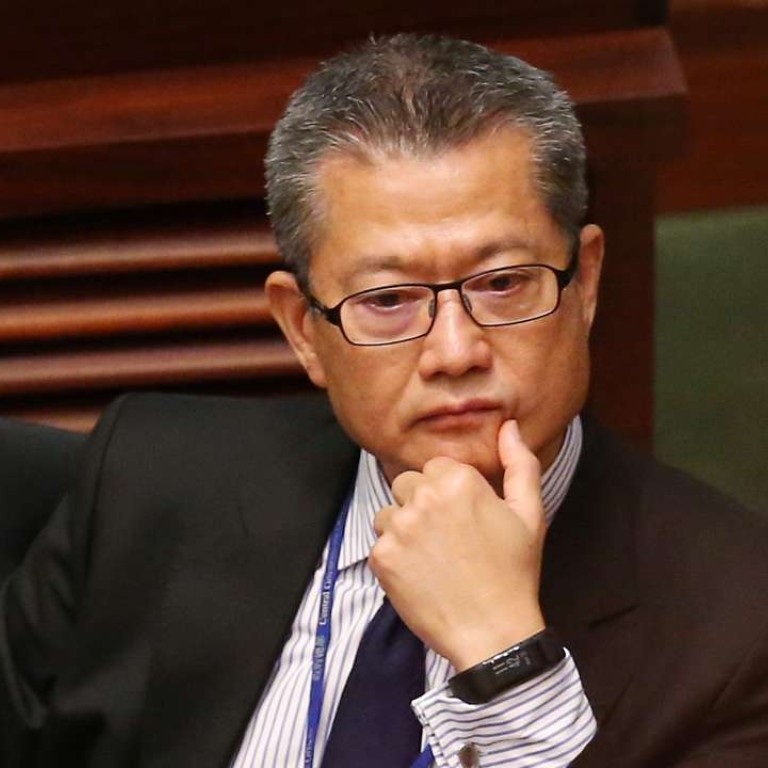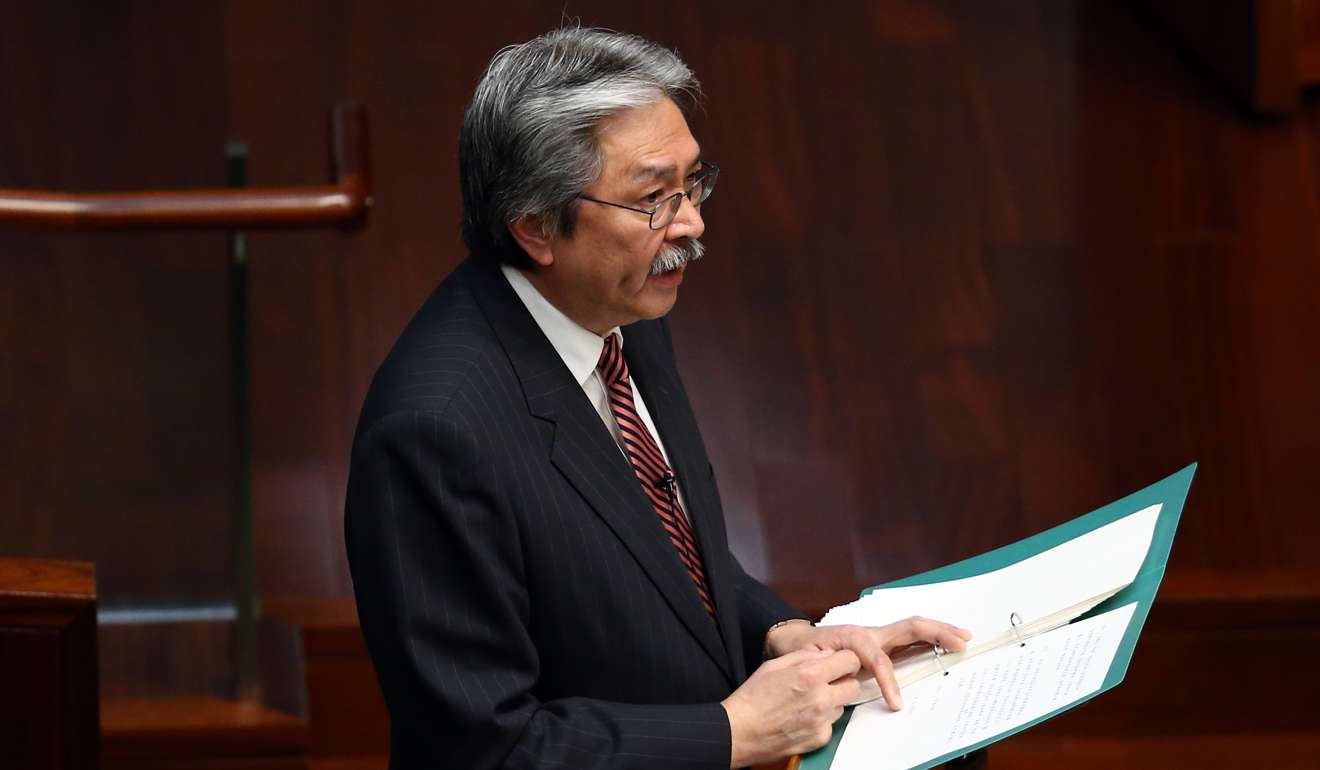
New financial chief promises budget surplus will benefit all Hongkongers
Paul Chan promises to make best use of a pot expected to total HK$70 billion to HK$85 billion while ensuring money is spent wisely
The new financial secretary has promised to make the best use of the expected huge budget surplus to enable all Hongkongers to enjoy “genuine benefits” while ensuring public finances are sustainable.
Paul Chan Mo-po, who was appointed to the post last month after John Tsang Chun-wah resigned to run for chief executive, also pledged to formulate forward-looking fiscal policies to tackle the increasing burden the city’s ageing population posed on government finances.
Chan will deliver his maiden budget on February 22, the last under the Leung Chun-ying administration.

Tsang had forecast a surplus of about HK$11 billion when he delivered his budget last year. But for the nine months of this fiscal year, the cumulative surplus had already reached HK$65.4 billion. The fiscal reserves stood at HK$908.3 billion at the end of December.
Major accounting firms and groups have forecast a 2016-17 budget surplus of between HK$70 billion and HK$85 billion.
A senior government source told the South China Morning Post that the forecast was “more or less” accurate, and the government was considering some relief measures for the middle-class.
Professor Terence Chong Tai-leung, executive director at Chinese University’s Lau Chor Tak Institute of Global Economics and Finance, expected Chan to follow what Tsang had laid down. “After all, the budget had largely been prepared by Tsang before he quit the government. There is not much room for Chan to add his input.”
Chong expected Chan would announce some tax rebates to benefit middle-class tax payers to ease political pressure.
“The current government is more or less becoming a caretaker government. And more importantly, the Basic Law states that the government should keep expenditure within the limits of revenues. So, whoever is the financial secretary, we can’t expect a drastic departure from the long-standing practice,” Chong said, referring to comments that Tsang’s fiscal philosophy was too conservative.
On his official blog on Sunday, Chan wrote: “Of course, public resources are not unlimited. Public money has to be spent wisely so as to allow the public to enjoy genuine benefits.
“As the financial secretary, I shall try my best to make sure all measures will be financially sustainable so that every resident can rest assured that they can benefit in the long run.”
Chan also stressed that the government had done a lot to improve people’s livelihoods, citing figures that spending in three policy areas in 2016-17 – education, medical services and social welfare – totalled about HK$200 billion, or roughly 60 per cent of the government’s recurrent expenditure.
Meanwhile, Chief Secretary Matthew Cheung Kin-chung wrote in his official blog that the government was committed to improving medical services, citing Leung’s announcement in his policy address last month that the government would pump an extra HK$2 billion into the Hospital Authority in 2017-18 to improve services.

